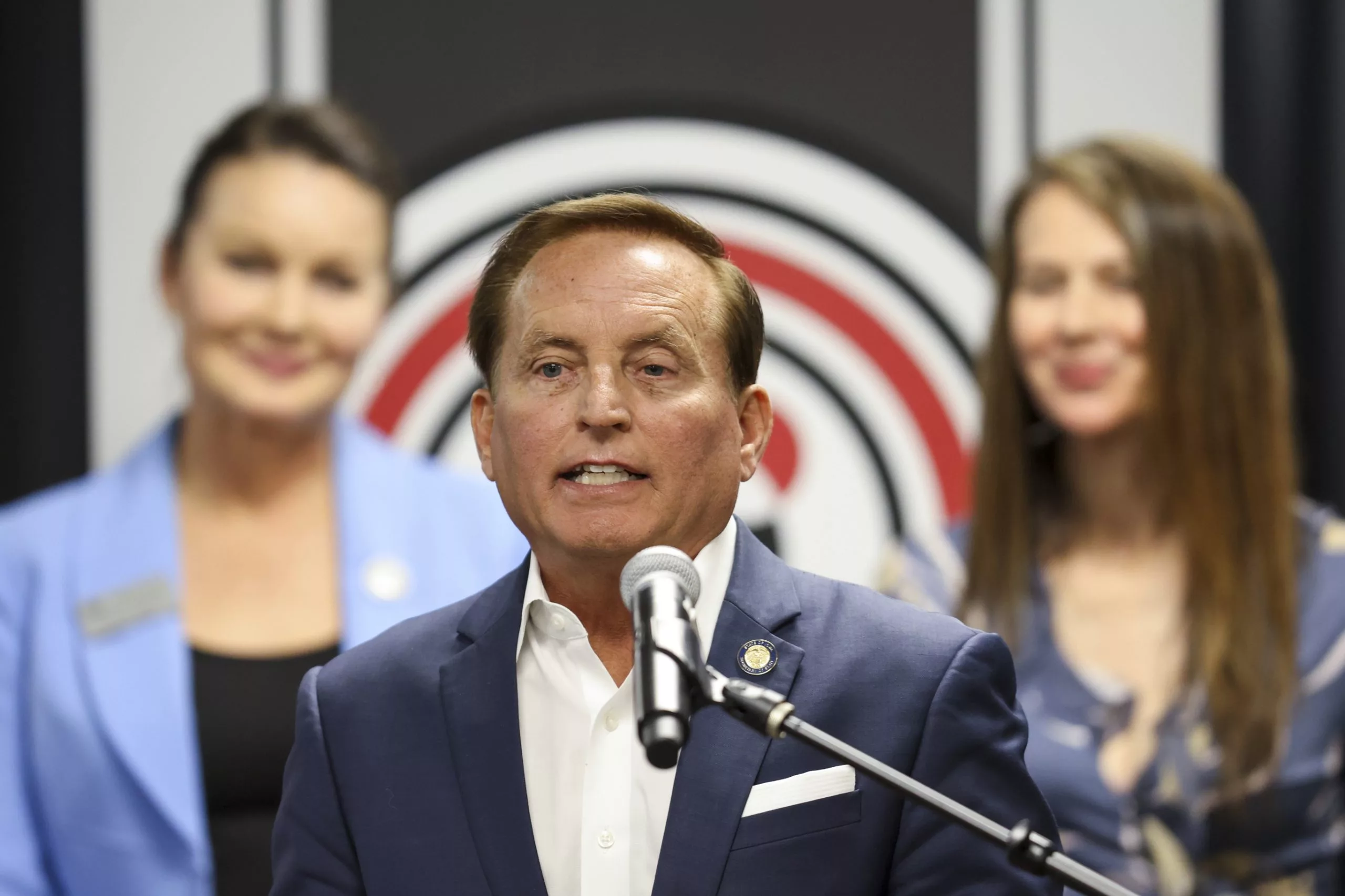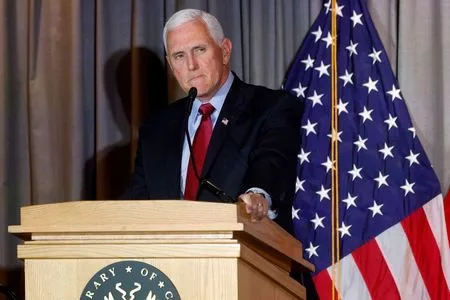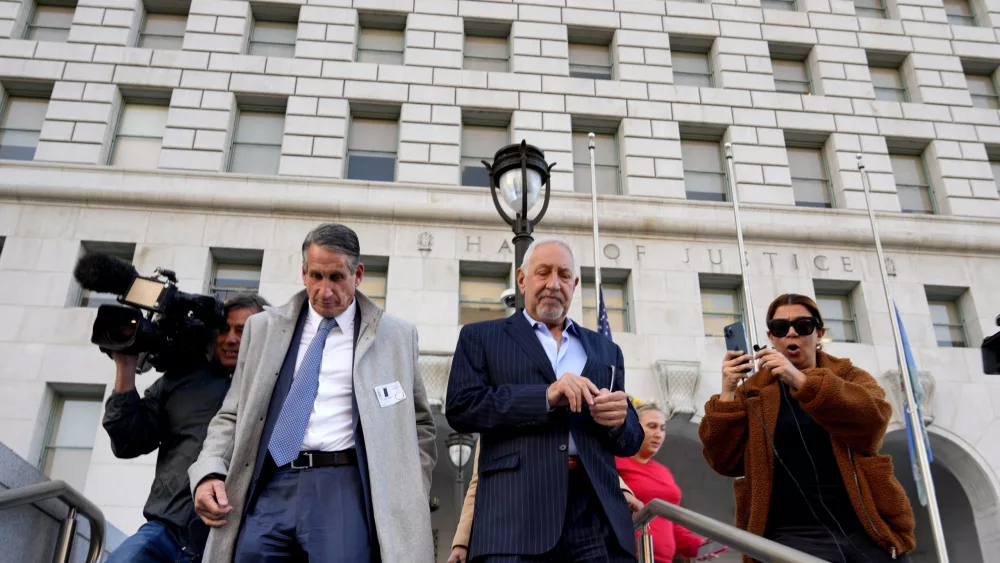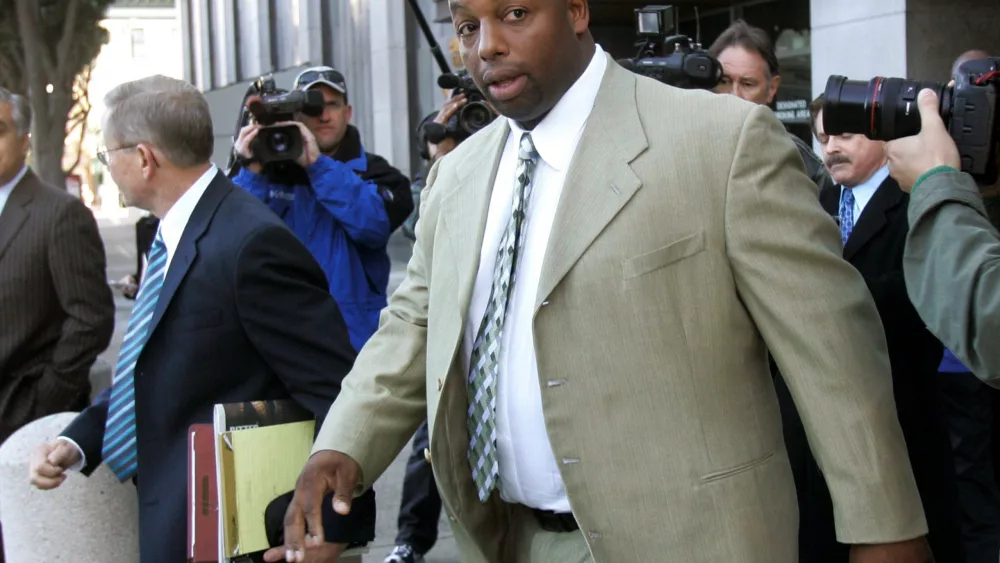DES MOINES, Iowa (AP) — Four voters and a Hispanic civil rights group sued Iowa’s top election official after he directed election workers to challenge the ballots of people who may be naturalized citizens, alleging the state infringed upon their rights in its attempt to keep ineligible noncitizens from illegally voting.
The American Civil Liberties Union of Iowa filed a legal challenge in federal court late Wednesday on behalf of four individuals flagged by Iowa Secretary of State Paul Pate as registered voters who might not be citizens. They are naturalized citizens, according to the complaint.
Pate’s office said last week that it provided county auditors with a list of 2,022 people who told the state’s Department of Transportation that they are not citizens but subsequently registered to vote or voted. Since those individuals may have become naturalized citizens in the lapsed time, Pate’s office told county elections officials to challenge their ballots and have them cast a provisional ballot instead.
They would have seven days — one more than usual because of a federal holiday — to provide proof of their citizenship status so that their ballot is counted.
According to the complaint, one new voter registered last year, a day after he became a U.S. citizen.
“Yet he was placed on the Secretary’s covert list and wrongfully subjected to investigation and an election challenge for following the law and exercising his right to vote,” the complaint says.
The ACLU is also representing the League of United Latin American Citizens of Iowa.
It is illegal for non-U.S. citizens to vote in federal elections, but there is no evidence that it is occurring in significant numbers, though Iowa and some other states have identified dozens of such cases.
Before the lawsuit was filed, Pate told reporters at a news conference Wednesday that the DOT list is the “only list that we have available to us” without access to federal immigration records.
“We’re balancing this process. We want everyone to be able to vote. That’s why none of them have been taken off the voter rolls,” he said. But “we do owe an obligation to make sure that they are citizens now.”
With early voting well underway and just days to go before the Nov. 5 election, the lawsuit asks for the list to be rescinded and voters on it to not be challenged on this basis. It alleges Iowa’s election officials are burdening the right to vote and discriminating against naturalized citizens, treating these voters differently from others in violation of their constitutional right to equal protection.
Iowa Attorney General Brenna Bird said in a statement Wednesday, before the ACLU’s lawsuit, that the U.S. Department of Justice “called the State in an attempt to pressure Iowa into letting noncitizens vote.”
“Every legal vote must count and not be canceled by an illegal vote,” she said. “In Iowa, we will defend our election integrity laws and protect the vote.”
In an email, a spokesperson for the Justice Department declined to comment.
The Associated Press left email messages with Pate and Bird on Thursday seeking comment on the ACLU’s lawsuit.
Pate tried to differentiate Iowa from other states, like Virginia, where more than 1,600 voters were purged from the voter registration list in the past two months in a program enacted through an Aug. 7 executive order from Republican Gov. Glenn Youngkin.
The Justice Department and a coalition of private groups sued Virginia earlier in October, arguing that state election officials violated federal law’s 90-day “quiet period” ahead of elections.
The National Voter Registration Act requires that quiet period so that legitimate voters are not removed from the rolls by bureaucratic errors or last-minute mistakes that cannot be quickly corrected.
The U.S. Supreme Court’s conservative majority said Wednesday that Virginia could continue, overruling a federal judge that said the state’s purge was illegal. A federal appeals court had previously allowed the judge’s order to remain in effect.
In a similar lawsuit in Alabama, a federal judge this month ordered the state to restore eligibility for more than 3,200 voters who had been deemed ineligible noncitizens. Testimony from state officials in that case showed that roughly 2,000 of the 3,251 voters who were made inactive were actually legally registered citizens.
Brought to you by www.srnnews.com








